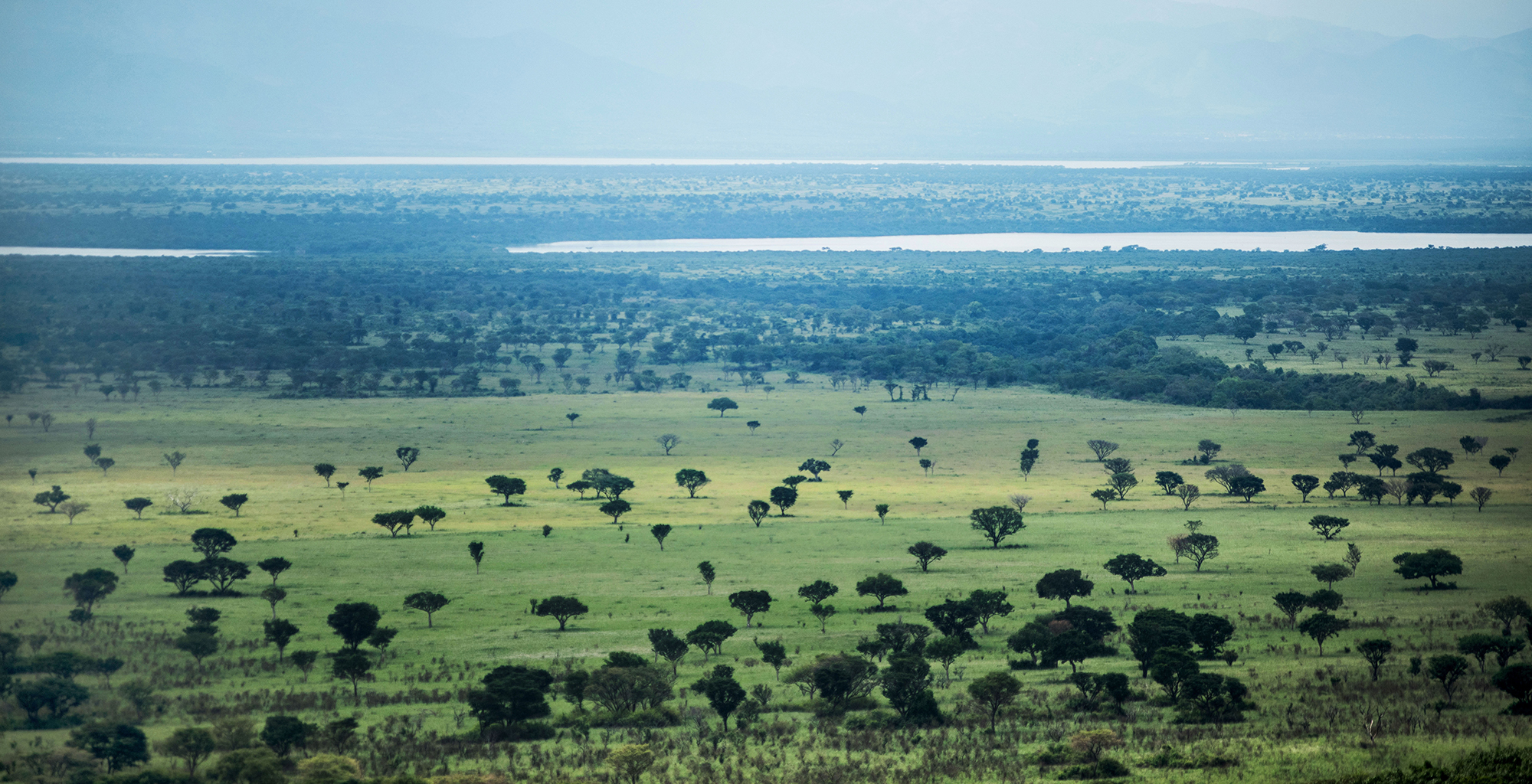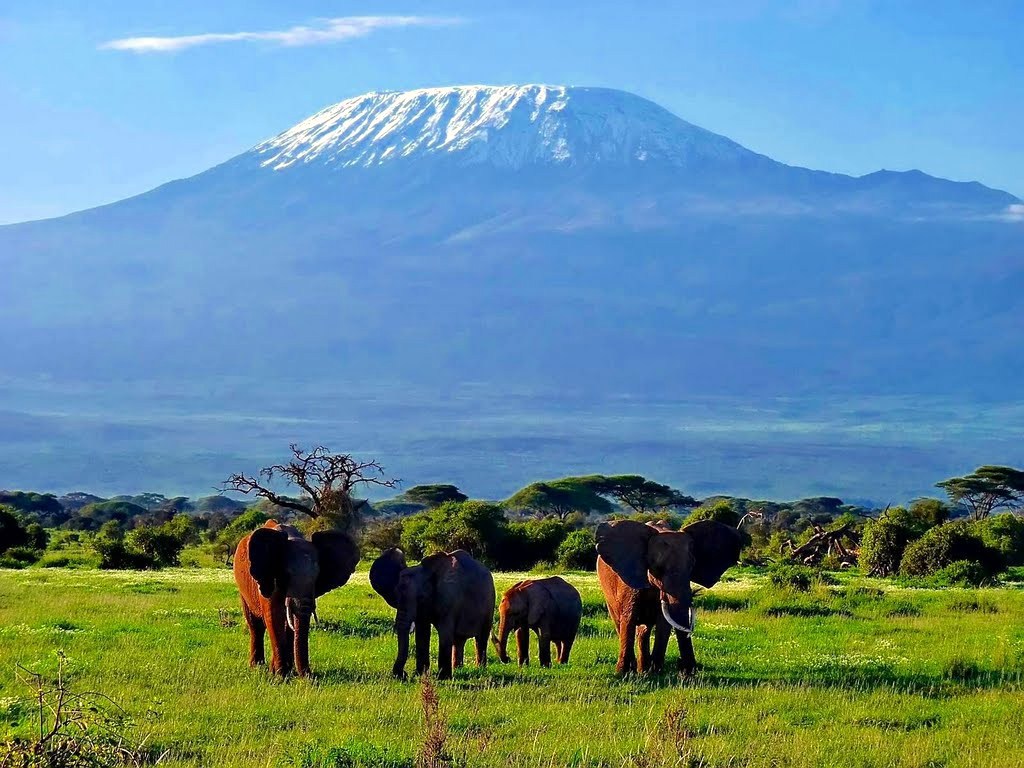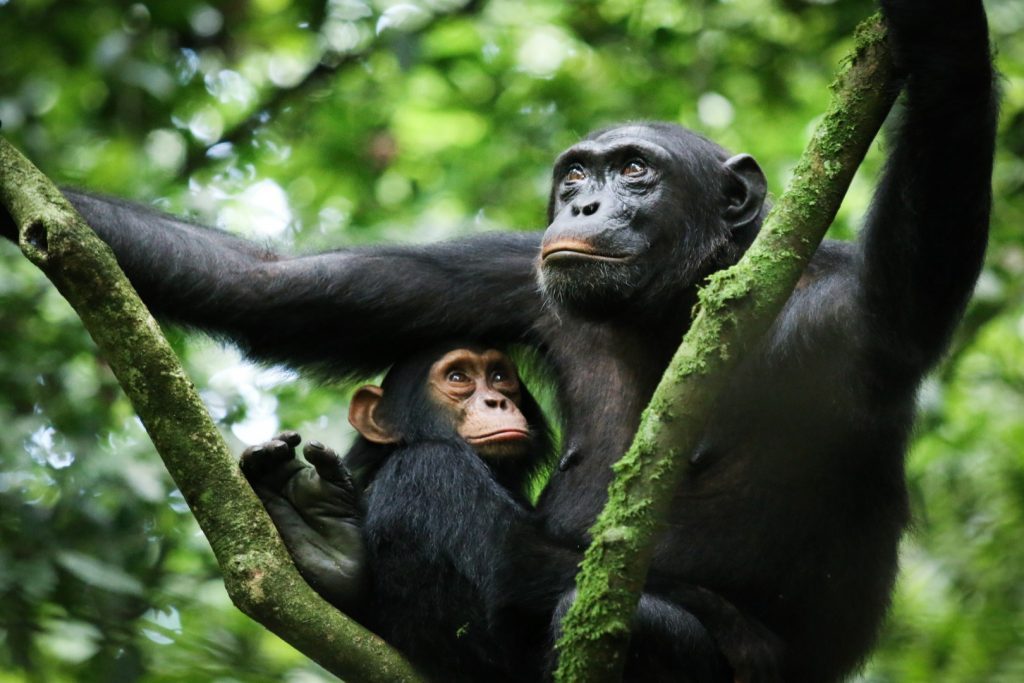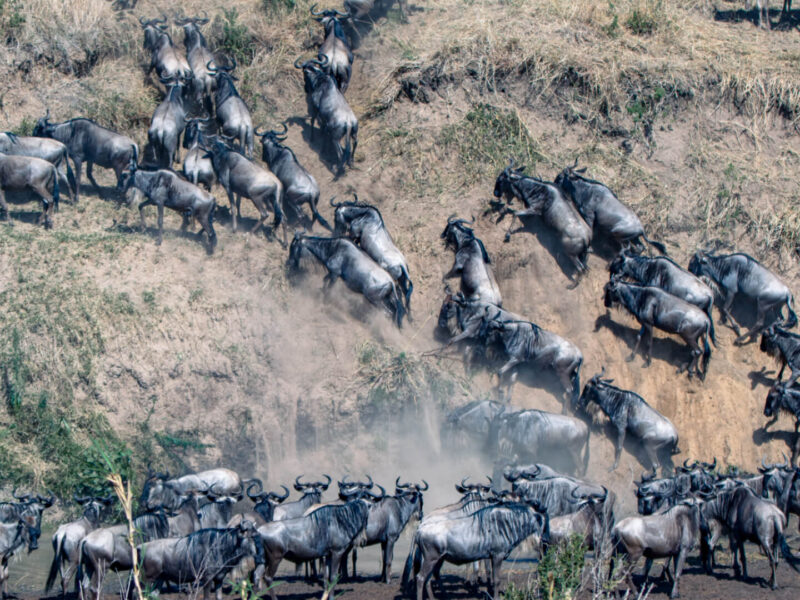
Murchison Falls National Park
April 1, 2025
Accommodation in Amboseli National Park
April 1, 2025Kibale National Park
Kibale National Park is one of Uganda’s most famous and ecologically diverse national parks, located in the western region of the country. Known as the “primate capital of the world,” Kibale is renowned for its rich biodiversity, particularly its population of chimpanzees, and its dense tropical rainforests. It is a must-visit for wildlife enthusiasts, particularly those interested in primate trekking, birdwatching, and lush forest ecosystems.
Overview of Kibale National Park
– Location: Western Uganda, in Kabarole District, about 320 km (200 miles) west of Kampala, Uganda’s capital.
– Size: Kibale National Park covers approximately 795 square kilometers (307 square miles) of forested land.
– Established: The park was established as a national park in 1993, though it has been a protected area since 1932.
– Biosphere Reserve: Kibale is part of the Kibale-Queen Elizabeth Ecosystem, and its tropical rainforest contributes to the overall biodiversity of the area.
Key Attractions in Kibale National Park
1. Primate Trekking (Chimpanzees)
Kibale is world-famous for its large population of chimpanzees. The park is home to over 1,400 chimpanzees, and visitors can enjoy guided treks to observe these incredible primates in their natural habitat. Kibale is one of the best places in Africa for chimpanzee trekking, offering a unique opportunity to interact with and learn about chimpanzees in the wild.
– Chimpanzee Trekking: This activity involves trekking into the forest with a knowledgeable guide to track chimpanzees. Once located, visitors can watch the chimps in their natural setting as they go about their daily activities, such as foraging, grooming, and socializing.
– Chimpanzee Habituation Experience: For a more immersive experience, visitors can participate in the Chimpanzee Habituation Experience. This unique activity allows you to spend a full day with a chimpanzee group, learning about their behavior and interactions. It’s an incredible experience for those who want to spend more time observing chimpanzees and understanding their social dynamics.
2. Other Primate Species
In addition to chimpanzees, Kibale is home to a variety of other primates, making it a top destination for primate enthusiasts. The park is home to 13 different species of primates, including:
– Red-tailed monkeys
– Blue monkeys
– L’Hoest’s monkeys
– Uganda mangabeys
– Olive baboons
– Black-and-white colobus monkeys
– Vervet monkeys
These primates can often be spotted during guided nature walks or treks through the forest, offering an exciting opportunity to see some of Uganda’s most fascinating wildlife up close.
3. Birdlife
Kibale National Park is also a fantastic destination for birdwatching, with more than 375 bird species recorded in the park. The park’s varied habitats, which include forest, wetlands, and grasslands, support a wide array of bird species.
– Notable Birds: Some notable species that can be found in the park include the African grey parrot, yellow-spotted nicator, blue turaco, and the hornbill species.
– Birdwatching Walks: There are guided birdwatching walks available, particularly in the park’s forest areas and swampy regions, where rare and endemic species can be spotted.
4. Kibale Forest Ecosystem
Kibale National Park is home to a unique and highly biodiverse tropical rainforest. The park is a mix of tropical rainforest, woodland, and swampy areas, making it an excellent place for wildlife observation and photography.
– Kibale’s Rainforest: The park’s dense, evergreen rainforest is lush and vibrant, with towering trees, vines, and diverse plant species. Visitors can walk through the forest, surrounded by the sounds of chirping birds, rustling leaves, and the calls of primates.
– Swamps and Wetlands: Kibale is home to several swampy areas, such as the Bigodi Wetland Sanctuary, which is great for birdwatching and exploring unique ecosystems.
5. Bigodi Wetland Sanctuary
Located just outside the park, the Bigodi Wetland Sanctuary is a community-based conservation area that offers visitors a chance to explore diverse wetland ecosystems. It is also known for its excellent birdwatching opportunities.
– Wildlife: The wetland is home to a variety of bird species, primates (including baboons and monkeys), and reptiles.
– Cultural Experiences: The Bigodi Wetland Sanctuary also provides opportunities to interact with local communities and learn about the cultural significance of the area.
Activities in Kibale National Park
1. Primate Trekking
As mentioned, chimpanzee trekking is the most popular activity in Kibale, but visitors can also track other primates. Guided treks typically last 1-4 hours, depending on the location of the chimpanzee or monkey group.
2. Birdwatching
The park’s rich diversity of birds makes it a top destination for birdwatchers. The Bigodi Wetland Sanctuary is an excellent spot for birdwatching, and guided walks are available to help you spot and identify species.
3. Nature Walks
Guided nature walks through Kibale’s tropical rainforest give visitors the chance to explore the park’s rich biodiversity and learn about the different ecosystems. Walks are typically led by experienced guides, who can share their knowledge about the flora and fauna of the park.
4. Cultural Experiences
Visitors can engage with the local communities around Kibale, which are involved in conservation efforts. Cultural tours may include visits to villages, traditional dances, and learning about the local customs and ways of life.
5. Kibale Forest Canopy Walk
A canopy walk gives visitors the chance to experience the park from a higher vantage point, allowing you to see the forest from above. The canopy walk typically involves walking along a series of suspended bridges that connect the treetops, offering a thrilling experience and providing a unique perspective of the forest’s ecosystem.
Conservation and Threats
Kibale National Park faces some conservation challenges, such as deforestation, poaching, and encroachment from surrounding communities. However, efforts are being made to mitigate these issues, including:
– Anti-poaching measures and patrols
– Community-based conservation programs to encourage sustainable farming and reduce human-wildlife conflict
– Research programs focused on understanding and conserving chimpanzees and other species in the park
The park is also working on establishing wildlife corridors to help preserve biodiversity and maintain genetic diversity among the wildlife populations.
Getting to Kibale National Park
Kibale National Park is located about 5-6 hours’ drive from Kampala, Uganda’s capital. Visitors can drive via Fort Portal, a town located near the park. There are also daily flights from Kampala to Kasese Airport, which is relatively close to the park, but traveling by road is the most common option.
Accommodation in Kibale National Park
There are various accommodation options within and around Kibale National Park, catering to different budgets and preferences. Some popular choices include:
– Luxury Lodges: Kyaninga Lodge and Primate Lodge are well-regarded for their comfort, stunning views, and proximity to the park.
– Mid-Range Options: Chimpanzee Forest Guesthouse and Rwenzori View Guesthouse offer affordable comfort with excellent access to the park.
– Budget Accommodations: There are also budget-friendly options, including campsites and basic lodges near the park entrance.
Best Time to Visit Kibale National Park
The best time to visit Kibale is during the dry season, which typically runs from December to February and June to August. During these months, the trails are less muddy, and wildlife sightings are easier as animals gather around water sources. The wet season (March to May and September to November) can make some areas of the park slippery, but the lush vegetation and thriving wildlife can still be seen.
Conclusion
Kibale National Park is a prime destination for those interested in primates, birdwatching, and exploring a stunning tropical rainforest. Known as the “primate capital of the world,” it offers unparalleled opportunities for chimpanzee trekking, as well as sightings of other primates, diverse bird species, and lush forest ecosystems. Whether you’re a wildlife enthusiast, an avid birdwatcher, or someone seeking a peaceful immersion into nature, Kibale National Park provides a rich and memorable experience.




